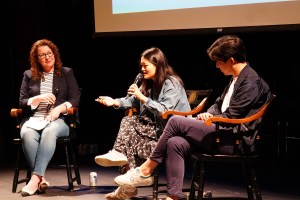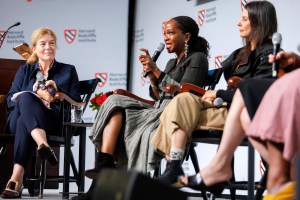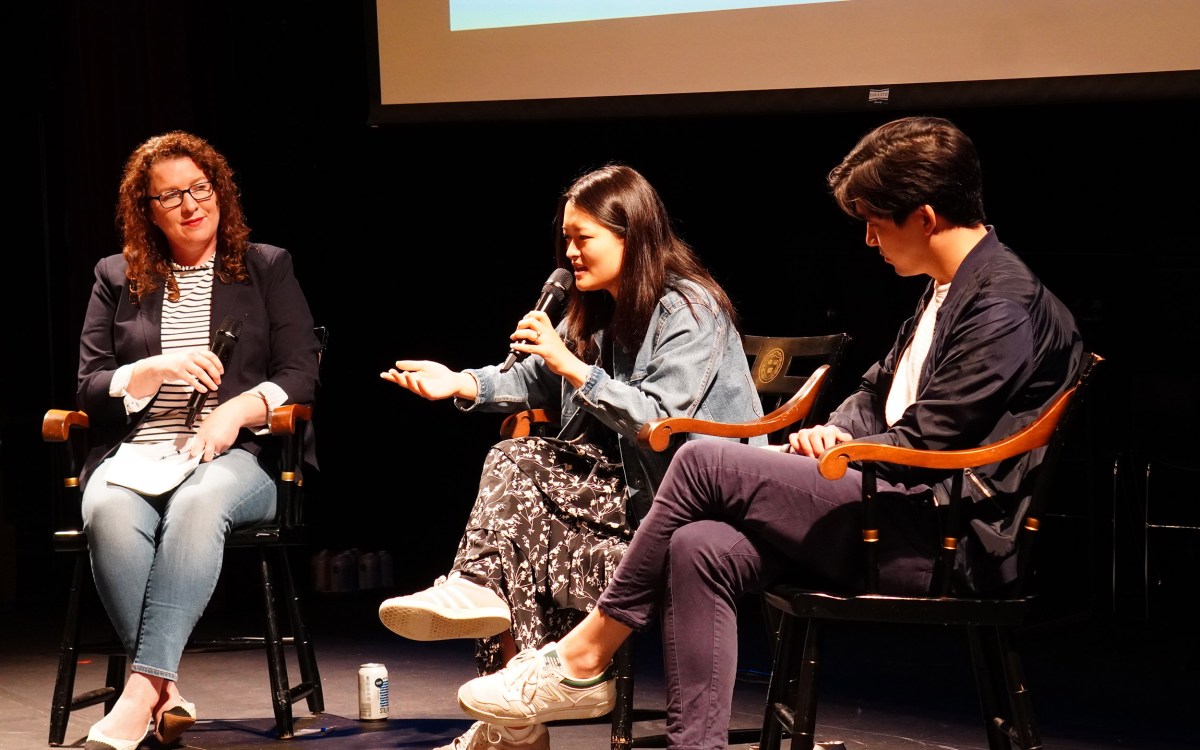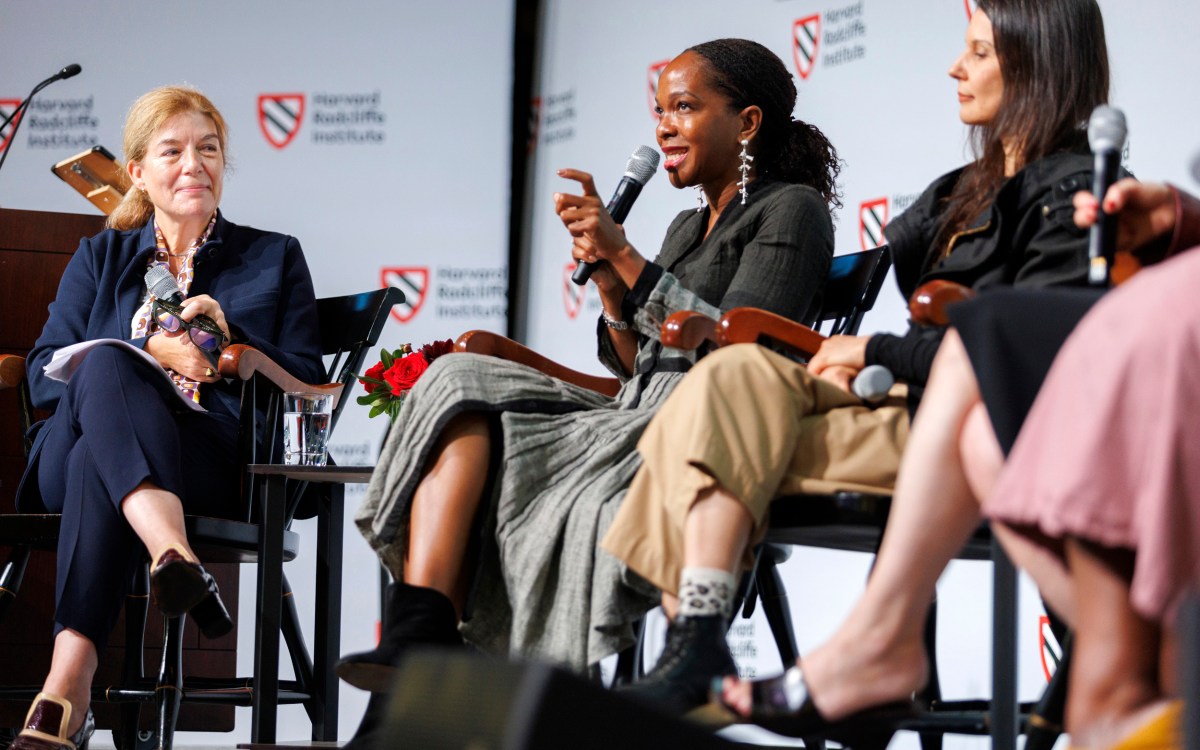Gold, clay, and universal forms
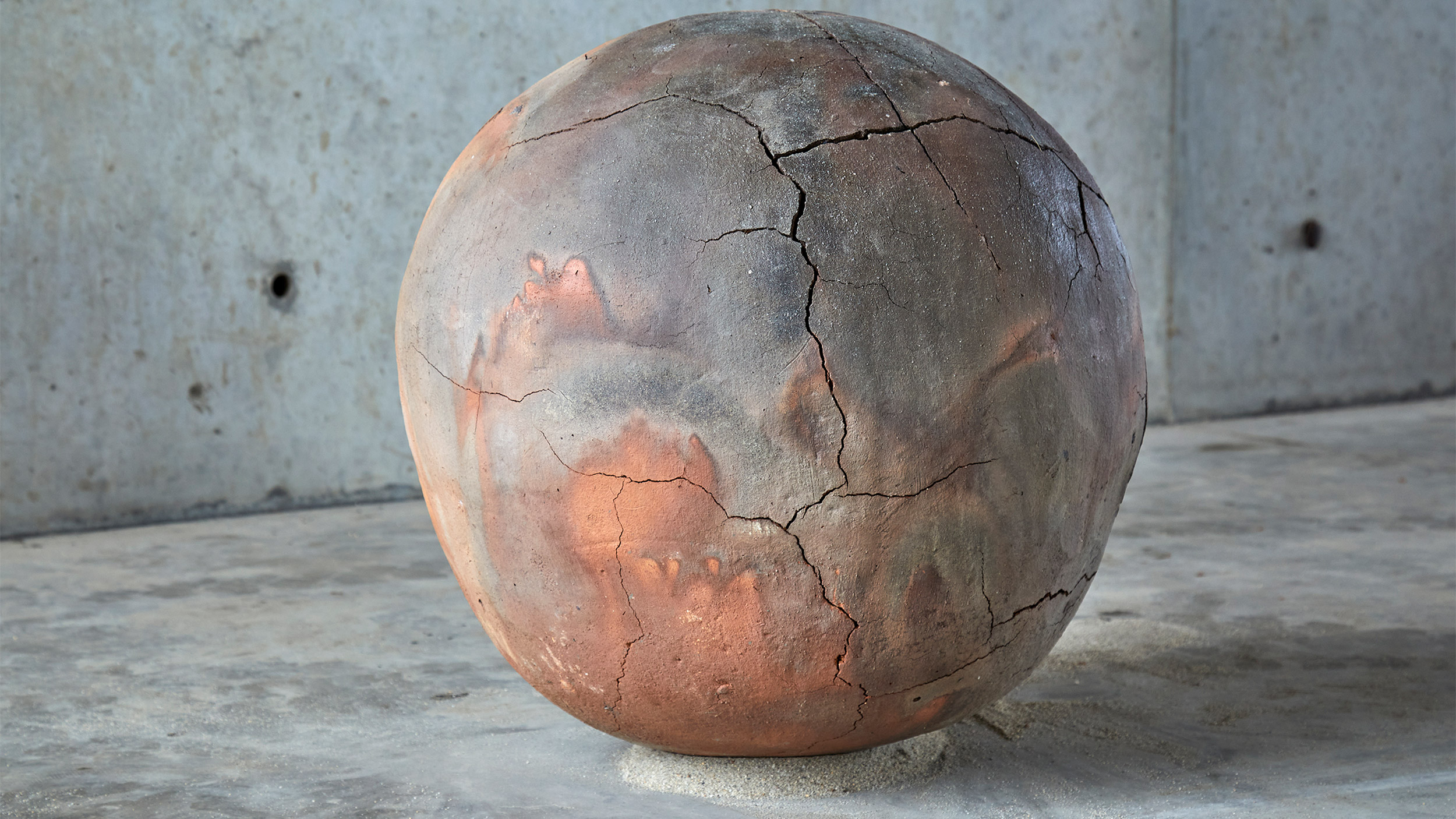
Bosco Sodi’s “Untitled,” 2021. Courtesy of the artist and Kasmin, New York.
Artwork: © Studio Bosco Sodi; phot courtesy of the artist and Kasmin, New York
With ‘Origen’ at Harvard Art Museums, Bosco Sodi explores the Earth’s elements
A new installation of sculptures by Mexican-born artist Bosco Sodi, “Origen,” places 14 of his handmade clay spheres at the Harvard Art Museums and marks the first-ever presentation of art on the museums’ outdoor Broadway terrace. In a first for a U.S. installation of the artist’s work, Sodi has also unveiled three gold-glazed spheres as part of his site-specific arrangement. The works are all on loan from the artist and Kasmin, New York.
“Bosco Sodi: Origen” will remain on display through June 9, 2024. The installation has been organized by Mary Schneider Enriquez, the Houghton Curator of Modern and Contemporary Art at the Harvard Art Museums.
Sodi’s practice explores the Earth’s elements, marrying age-old traditions of sculpting clay with a contemporary vision of creating simple universal forms that prompt reflection. “Origen,” which the artist defines from the Spanish as “source,” signifies both the center of a circle or sphere and the beginnings of the planet, including all the attendant geological, historical, and spiritual connotations of the word.
Sodi has long admired the aesthetics of Japanese wabi sabi, which he interprets as operating on principles that favor imperfection and impermanence; his approach celebrates the varied, irregular fissures and faults that enliven his clay forms and their site-specific installations. He creates his spheres by hand in Oaxaca, Mexico, where centuries ago (approximately 500 B.C.–900 A.D.) the Zapotec culture flourished and was celebrated for their sophisticated terracotta sculptures. Building on this history, Sodi works with Oaxacan artisans, using local clay to sculpt each sphere, drying them outside for up to eight months, and then firing them in a makeshift kiln built on a Pacific Ocean beach. The resulting forms reveal the effects of nature’s forces — sun, sea air, and fire — as demonstrated by the myriad cracks, chips, and blackened and crusty patches that distinguish each sphere.
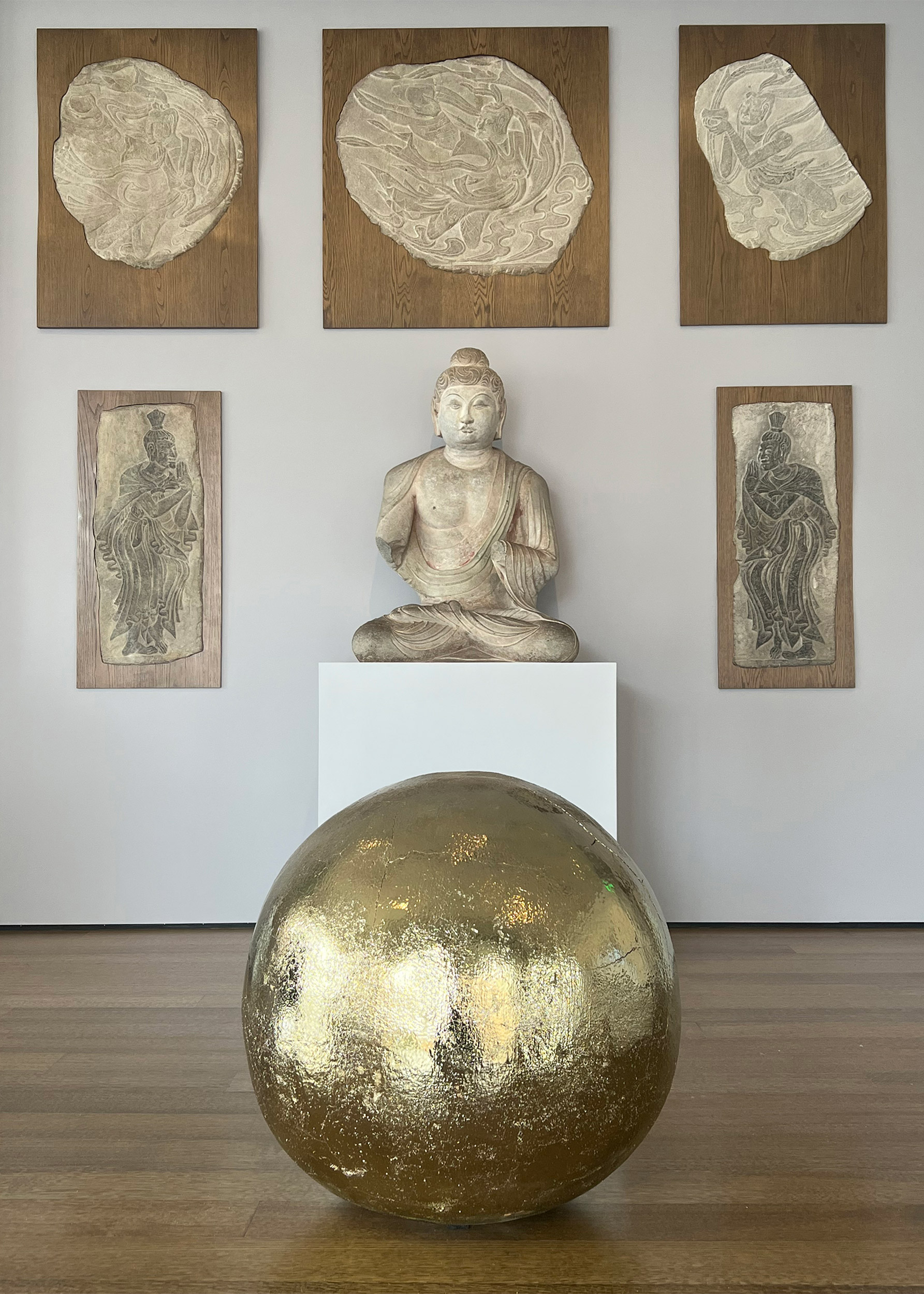
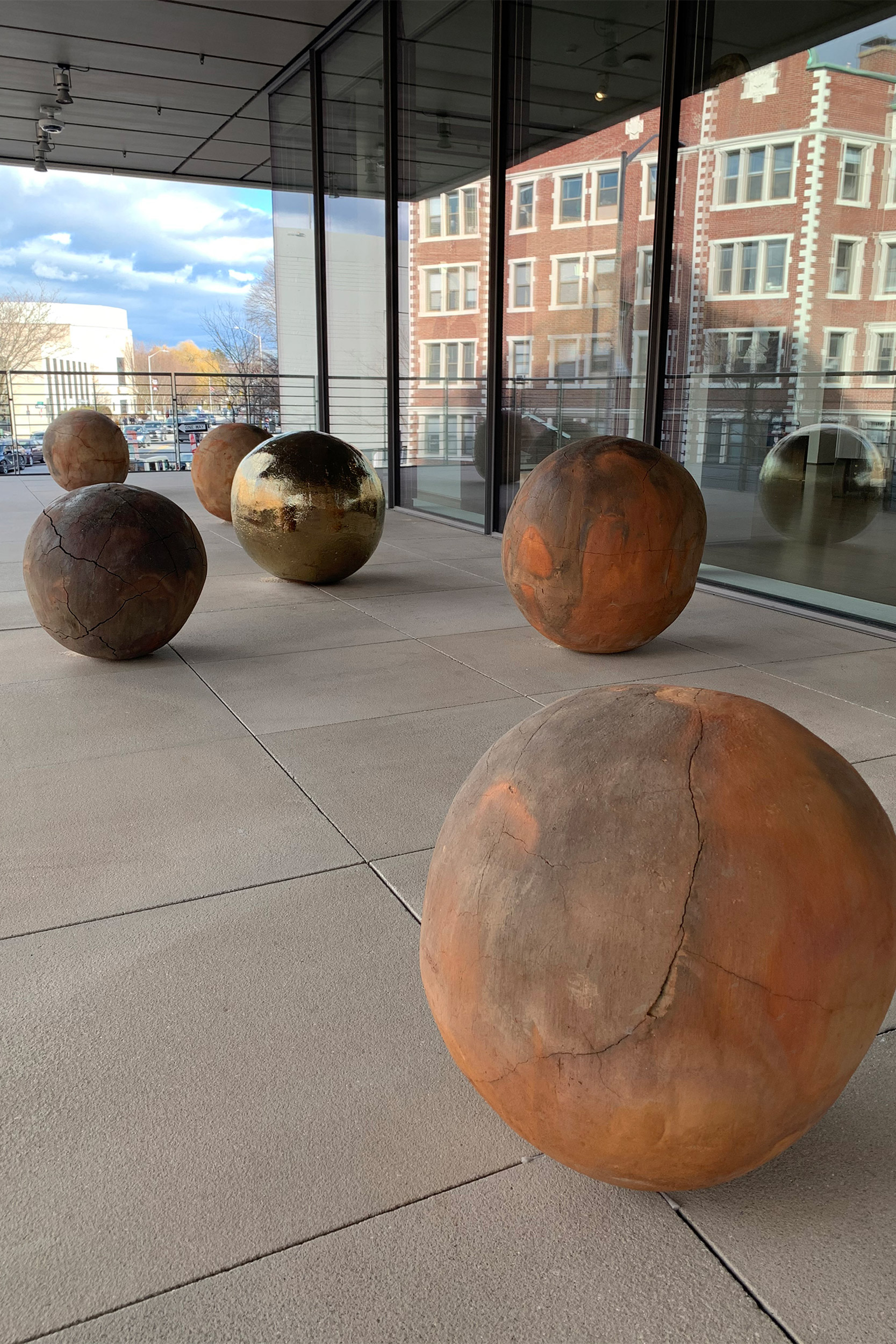
One of the 17-karat-gold-glazed spheres in the Harvard Art Museums’ Gallery 1610. Bosco Sodi’s spheres on the outdoor Broadway terrace, marking a first for the space.
Courtesy of the artist and Kasmin, New York; photo by Tara Metal/Harvard Art Museums
“Bosco Sodi’s work speaks to the material and to the body, to the earth and to the essential thread connecting human beliefs and existence to the world we inhabit,” said Schneider Enriquez. “His terracotta spheres, sculpted by hand and fired in outdoor kilns, convey the age-old, universal symbol as an evocatively rustic, physical presence that invites deep contemplation.”
Twelve spheres of varying sizes have been installed on the museums’ Broadway terrace, with two additional spheres installed indoors within two consecutive galleries of Asian art (Galleries 1600 and 1610) that have a direct view onto the terrace. Moving from outside to inside the museums, three of the artist’s 17-karat-gold-glazed spheres connect to and engage with the meditative atmosphere evoked by the installation of Buddhist figures in Gallery 1610. Sodi, who equates the spherical form with belief systems and the color gold with holiness, puts the spheres in dialogue with the sculptures throughout the gallery.
Said Schneider Enriquez: “I am thrilled to present ‘Origen,’ both outside the museums and within our galleries of Asian Buddhist and Chinese funerary art, and hope that visitors will find Sodi’s installation prompts them to pause and think further about sculpture and beliefs across time and cultures.”
